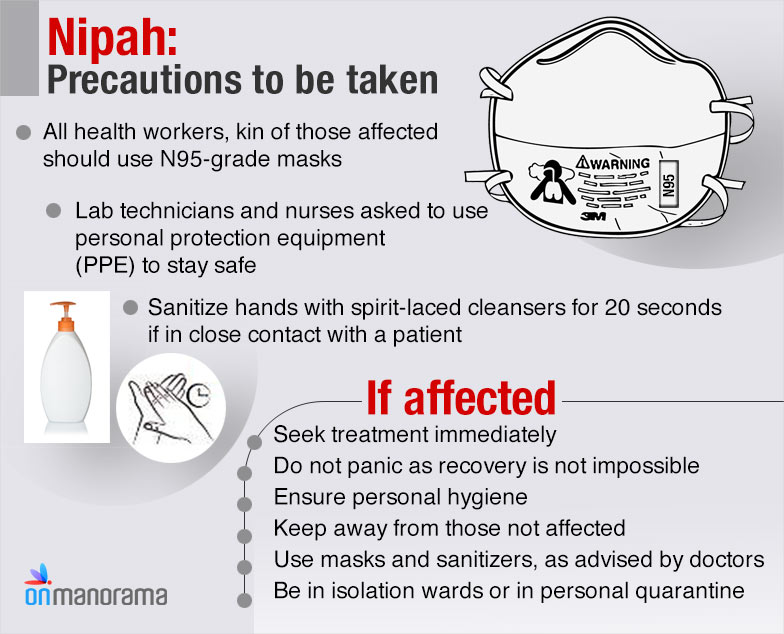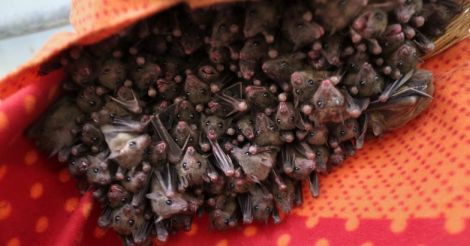The Nipah virus cases at Perambra in Kozhikode have attracted the attention of health professionals around the world. It has to be confirmed that the virus was spread by bats and precautionary measures taken. However, there is no need to panic over a possible outbreak of a major scale. There are valuable lessons to be learned from Malaysia and other places where the virus caused deaths earlier in this regard.
In Malaysia, Nipah was first detected in 1999. Several people who were engaged in rearing pigs at Sungai Nipah village on the banks of Nipah River, became ill and died. When authorities conducted an investigation, they found that the disease had been contracted from pigs. The pigs were infected with the virus after they consumed the fruits partially eaten by bats. Authorities noticed that migratory bats had spread the disease. The fruits that the pigs ate had traces of the saliva of bats. People who had touched the secretions from the nose and other areas of pigs became sick. The virus had spread from animal to man, but not from man to man. In total, over 300 people became sick and more than 100 succumbed to the disease.
Effectively control measures
In Malaysia, we tackled the problem 19 years ago. The disease has never recurred in the country. The reason is the effective way Nipah has been tackled. Over 20 lakh pigs were culled when Nipah was confirmed. That went a long way in controlling the spread of the virus.
After Nipah virus created a problem, Malaysia introduced stringent measures to control rearing of pigs. Animal welfare department officials regularly inspected pig farms and the practice is still followed. They checked the health of the animals also. A ban was imposed on rearing pigs in open areas. This was considering the fact that pigs had got the virus from fruits partially eaten by bats while wandering here and there. Nipah does not spread through air or by mosquitoes.
Even now, samples of blood and cerebrospinal fluid of patients suffering from encephalitis are checked for Nipah virus. Strict guidelines have been issued by the health department in this regard.

However, in Bangladesh, Nipah outbreaks have recurred several times. In that country also, bats spread the disease. Most of the victims were children who ate fruits bitten by bats. Several health care workers who treated the children were also affected. In Bengal too bats had spread Nipah virus in Siliguri and Nadia districts.
Killing bats is not the solution
There is no medicine available at present to treat a patient affected by Nipah virus. No antiviral vaccine has been invented so far. All that could be done is ensure supportive and symptomatic treatment for the patient.
Care should be taken to prevent contacting the virus. However, killing bats is not the solution because bats are an integral part of our ecosystem. Migratory bats choose certain for perpetuation of species and other purposes. Humans should desist from venturing into their habitats. It should be ensured that people and domestic animals do not consume fruits bitten or partially eaten by bats.
In animal farms, cleanliness and hygiene should be made mandatory. There has to be no compromise regarding this. This will help in controlling not only Nipah but also other diseases. It is an old lesson that we can keep diseases at bay by ensuring cleanliness in our surroundings as well as overall hygiene. That lesson is always relevant.
(The author is a senior public health consultant with the health department of Malaysia)

























 Image for representation only. AFP/File
Image for representation only. AFP/File